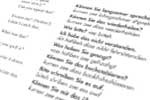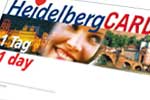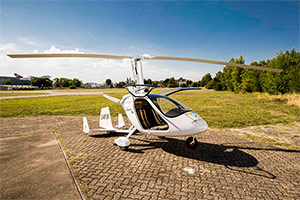everyday life
European Currency:
The Euro has been the standard currency in Germany since January, 2002. It's denominations include 5, 10, 20, 50, 100, 200,and 500 Euro bills, and 1, 2, 5, 10, 20, 50 cent coins and 1 and 2 Euro coins. The fronts of the coins are identical and each country in the Union has a unique design on the back. The bills are all identical, using different bridges and well-known buildings throughout Europe on each denomination. All Euros, regardless of where they are from, are valid in any country which accepts Euros.
Banking System:
The banking system is a little different than that in North America. The main difference is the checking system. In Germany, instead of making a check out to a person, it is made out to an account number. This system operates much like the U.S. system of online bill payments, only it is used for any type of transaction that would normally in the U.S. use a check.
Leisure:
Relaxing is as much a part of the day as work is, and there are many options for enjoying one’s free time. Museums, theatre, opera, and the symphony are always an option, but for more everyday activities, going to the cinema, sport club, or library is common. Visiting with friends at a café, restaurant, or pub is another good way to pass the time.
Sports are also big in Germany. Football (soccer) is the national sport, with the national league playing nine months out of the year. Also popular are auto racing, bicycle racing, field hockey, track and field and tennis.
Media:
There are several types of print media in Germany – national, regional and local newspapers, political journals and magazines, tabloids, and magazines of every variety. Along with this are German versions of many different foreign-produced newspapers and magazines.
The German television and radio system is a combination of public channels sponsored by the state, and private channels, which are financed through advertising.
Post Office:
The German postal system called Deutsche Post, and it operates the same way the postal system operates in the U.S. The parcel and express mail division of the Deutsche Post is DHL. The post office and its stamp machines and postal drop boxes are always easily recognizable: they are all bright yellow.
Schools:
At age 3, children have the legal right to attend kindergarten, which can be compared to a combined version of the American pre-school and kindergarten. At age six children begin their normal schooling at an elementary school.
The first four years of school (Classes 1 – 4) are at a Grundschule, or elementary school, which is then followed by enrolling in one of the different types of secondary schools. Which school a child enters is determined by a combination of their academic ability, teacher recommendation and family requests.
Students in the Hauptschule (Classes 5 – 9), and Realschule (Class 5 – 10), learn the same subjects as those at the Gymnasium (Class 5 – 13), but at a slower level. Also incorporated into their studies are vocational-oriented courses. After completion of their studies, students at a Hauptschule or Realschule then go on to do either an apprenticeship or further study at a technical college, preparing them for some type of vocational profession.
At the end of a student’s study at the Gymnasium, an exam, called the Abitur is taken, which allows them to continue their studies at one of the many Universities in Germany. Students who have graduated from the other secondary schools are also allowed to take the Abitur so they can study at a university, but only after they have completed their vocational training.
Shopping:
Business Hours:
Business hours are regulated by the government, and not by the store owner. Stores must be closed by 8 o'clock during the week, and 6 or 8 o'clock on Saturday, depending on the type of store. With the exception of restaurants, bakeries and gas stations, all stores are closed on Sunday. Some stores, like bakeries, are allowed to open early, and others, like gas stations and restaurants, are allowed to stay open longer.
Floors:
Floors are numbered a little differently in Germany than they are in the U.S. In the American system, the entrance floor is the 1st floor, and the floor above is the second. In the German system, the entrance floor is the ground floor, and the floor above is the 1st floor. The ground floor is usually called the “Erdgeschoss”, and floors above the ground floor are called “Obergeschoss” or "Etage". Floors below the ground floor are called “Untergeschoss”.
Tax:
One of the biggest differences when shopping in Germany is the tax system. When shopping, the tax is already included in the price, so when it says 19.99, then that is the price you will pay. This is applicable for everything that you purchase (clothes, food, tickets...), and makes shopping much easier.
Telecommunications:
The telecommunications system in Germany is one of the most technically advanced in the world, giving the consumer many options for local and long distance telephone service, internet access and cable television.
Transportation:
The public transportation system is extensive and varied. Local trains, U-Bahns (underground trains), S-Bahn (suburban trains), buses and trams are all options for traveling within the city and its regions. The German rail company, Deutsche Bahn (Die Bahn), has many different types of regional and long distance trains, making it easy to travel throughout the country, as well as Europe, with little effort.



